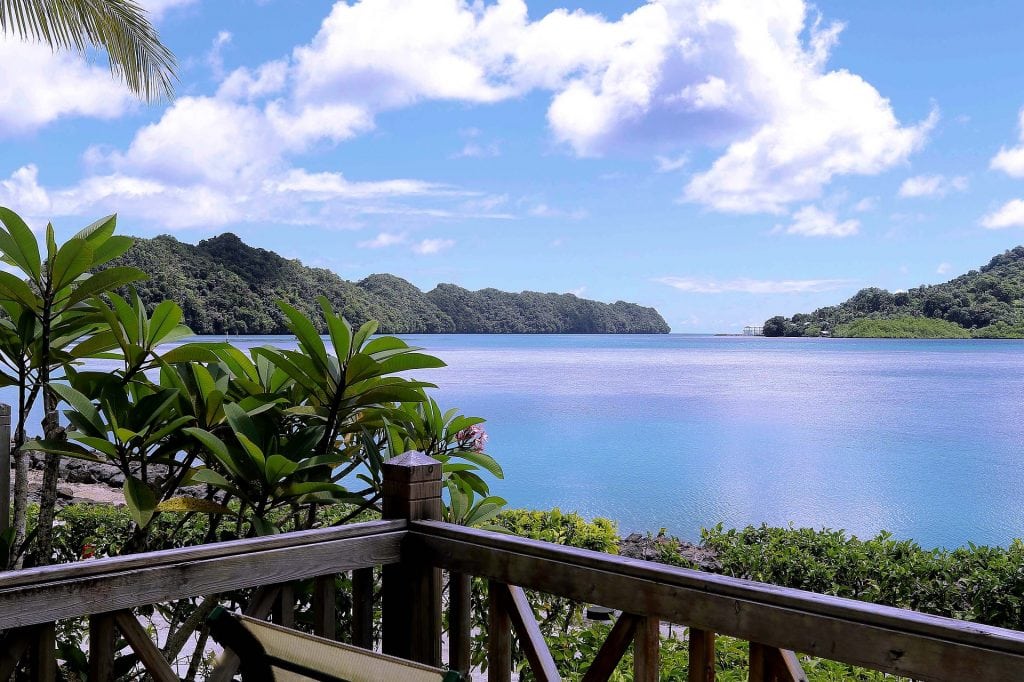Skift Take
The tiny republic of Palau is striving to become a global leader in ecotourism. In recent years, the government has made moves to ensure the country becomes a pristine paradise for luxury travelers.
Palau may be tiny (population 21,500ish), but the Micronesian republic, made up of hundreds of islands, is looking to punch above its weight when it comes to attracting luxury tourism development.
Following the leads of Botswana and Bhutan, the government has decided to focus attracting high-end, low-impact tourism. This is best exemplified by the recent signing of a law that limits foreigners to investing in luxury tourism projects that come complete with their own infrastructure.
At the same time, the bill provides international investors with tax breaks and exemptions. In a parallel development aimed at keeping Palau pristine, incoming tourists must now sign a Palau Pledge upon arrival, agreeing to respect the environment.
Due to a boom of Chinese package tourism to Palau during the past decade, there have been growing concerns about the impact of low-spend, mass tourism on the country’s environment, particularly its beaches and coral reefs. In fact, back in 2015, the government actually cut the number of charter flights allowed from China.
In a press statement last year, President Tommy Remengesau, Jr. said: “While the numbers went down, the actual tourist spending went up. It confirms our direction [to attract] less tourists who spend more which equates to more tax dollars.“
(At the end of 2017, the Chinese government started discouraging travel to Palau due to the latter country’s diplomatic relations with Taiwan. As a result, in the middle of July, Palau Pacific Airways, which served the Chinese market, announced it was ceasing flight operations on those routes, after passenger numbers dropped by 50 percent in eight months.)
Moving Away From Mass Tourism
According to Nanae Singeo, former managing director of the Palau Visitors Authority, 2015 was a pivotal time in the turn away from mass market tourism. It was the first full year of a rebranding effort that resulted in Pristine Paradise Palau, both a tagline and strategic philosophy. Also in 2015, legislation was passed that led to the creation of the Palau National Marine Sanctuary, the largest fully-protected, no-take zone in the world.
The government then proceeded to develop the Pristine Paradise Act, which passed in March, 2018. In his signing statement, Remengesau wrote, “More than just permission to accept or reject certain development proposals, this bill gives the Foreign Investment Board (FIB) the power to directly incentivize the projects we want most…..as we take an active role in planning Palau’s economic future.”
While restricting foreign investment to five-star projects, the bill also contains strict environmental regulations, along with minimum local employment guarantees, and tax credits up to 40 percent for any off-site road, power, water and/or sewer infrastructure improvements. As such, according to Remengesau, “Providing a credit will also help Palau’s infrastructure, as it will encourage the development of rural areas and relieve the growing congestion of our existing accommodation centers.”
Greg Klassen, whose tourism consulting firm Twenty31 has done work in Palau, says the new legislation “is a sign to me that they are maturing very quickly and understand the full benefits of the tourism economy. They see that all foreign investment isn’t necessarily a good investment. “
Meantime, Palau is also the first country to incorporate environmental practices into its immigration laws. In order to curb the ecological damage caused by tourists, a new immigration and entry visa process, called the Palau Pledge, was also recently adopted.
Officials stamp the pledge in tourist passports upon arrival, and those arriving must sign it in front of an immigration officer. This mandatory agreement is a promise to act in an environmentally responsible way. Authorities can fine or take legal action against visitors who break the pledge.
Advertising agency Host/Havas Australia worked in partnership with the Palau Legacy Project, a Palau-based group of business and marketing professionals, to develop the conservation message.
“Palau is a true paradise, with a legacy of taking bold, pioneering steps to preserve it. They know that to solve something no one else has been able to you can’t do what everyone else has been doing, to inspire lasting change in behavior, we had to find a way to make every visitor stop and think, that would transcend culture and nationality,” Seamus Higgins, executive creative director at Host/Havas Australia, said.
“This is behavioral psychology, innovative legislation and creativity coming together to do something that’s never been done before.”
The Daily Newsletter
Our daily coverage of the global travel industry. Written by editors and analysts from across Skift’s brands.
Have a confidential tip for Skift? Get in touch
Tags: luxury
Photo credit: A view out to the sea in Palau. The Pacific island is targeting the luxury tourism market. Jeff Balbalosa / Pixabay
